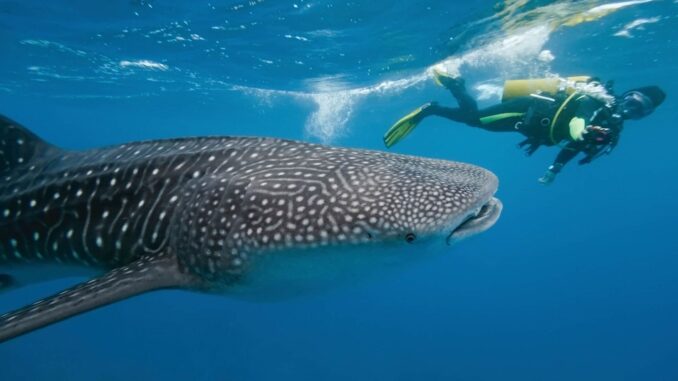
Shark tourism in the Maldives represents a significant and growing segment of the country’s tourism industry. Situated in the Indian Ocean, the Maldives is a collection of atolls known for their rich marine biodiversity, making it an ideal destination for shark enthusiasts.
The Maldives hosts a variety of shark species, including the majestic whale shark, the largest fish in the world. The South Ari Atoll, in particular, is renowned for being a whale shark hotspot, where these gentle giants can be spotted year-round. Additionally, species like reef sharks, hammerheads, and tiger sharks are commonly seen in different atolls. This diversity makes the Maldives a premier destination for shark tourism.
Shark tourism contributes significantly to the Maldivian economy. The revenue generated from dive tours and shark-watching excursions is a vital source of income for many local communities. It’s estimated that a single whale shark can contribute over a million dollars to the economy over its lifetime through tourism. This economic aspect underlines the importance of shark conservation efforts to sustain the industry.
The Maldivian government, recognizing the value of sharks, has implemented several conservation measures. In 2010, the Maldives declared its entire territorial waters as a shark sanctuary, banning the fishing of sharks in its waters. This move was pivotal in protecting shark populations and ensuring the sustainability of shark tourism.
Ecotourism and responsible shark watching practices are emphasized in the Maldives. Tour operators and guides are typically well-trained in sustainable tourism practices, ensuring that interactions with sharks are respectful and do not disturb their natural behaviors. Regulations are in place to prevent over-crowding at popular shark sites and to maintain a safe distance from the animals.
Research and education are integral parts of shark tourism in the Maldives. Many resorts and tour operators collaborate with marine biologists and conservation organizations to conduct research and educate tourists about shark behavior and conservation.
In conclusion, shark tourism in the Maldives is a thriving industry that balances economic benefits with environmental responsibility. Through sustainable practices and conservation efforts, the Maldives serves as a model for wildlife tourism, ensuring that these magnificent creatures can be observed and appreciated for generations to come.




